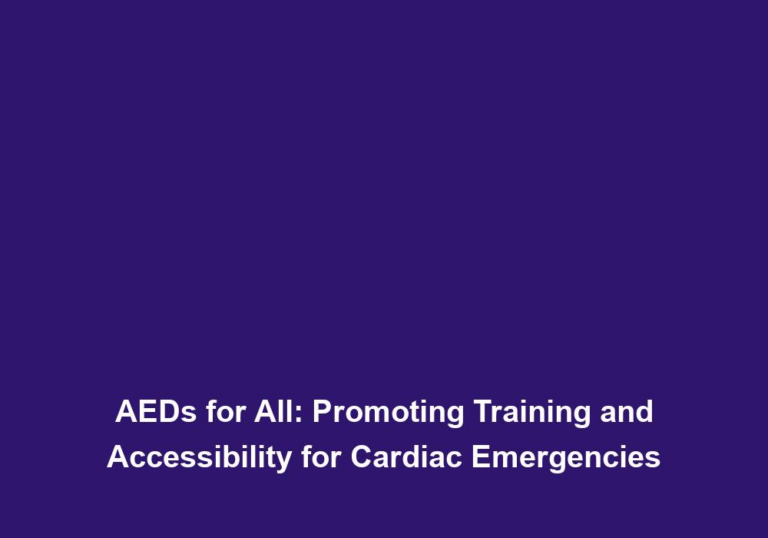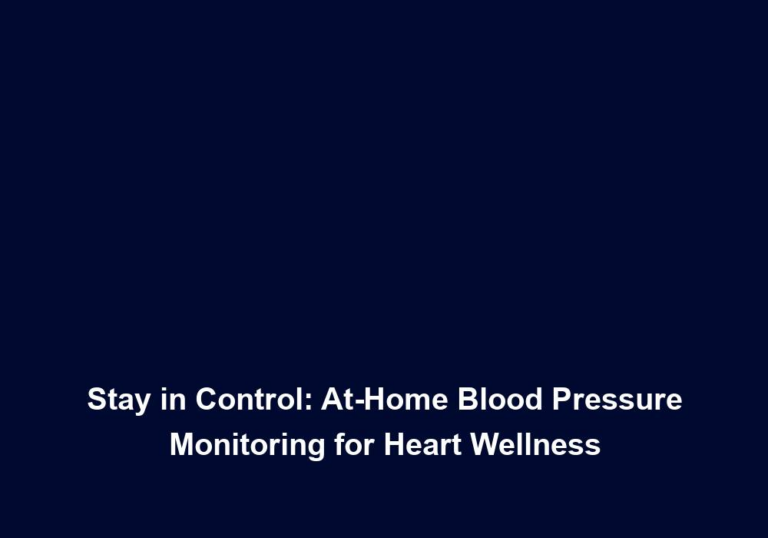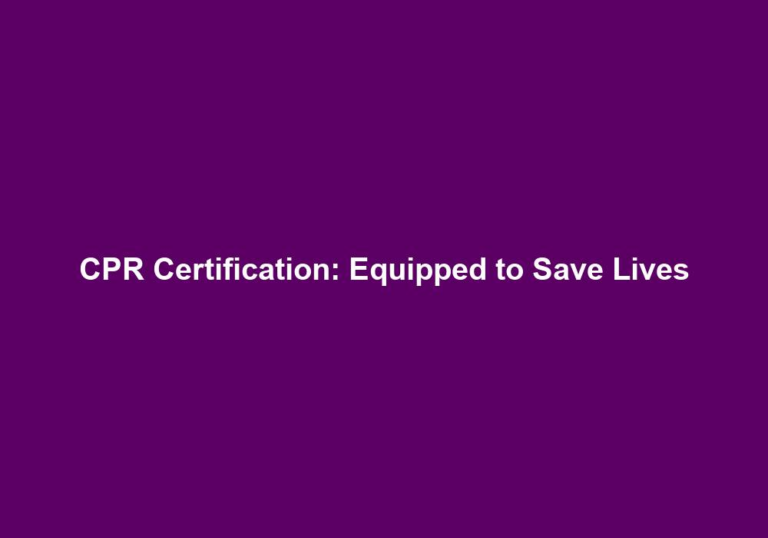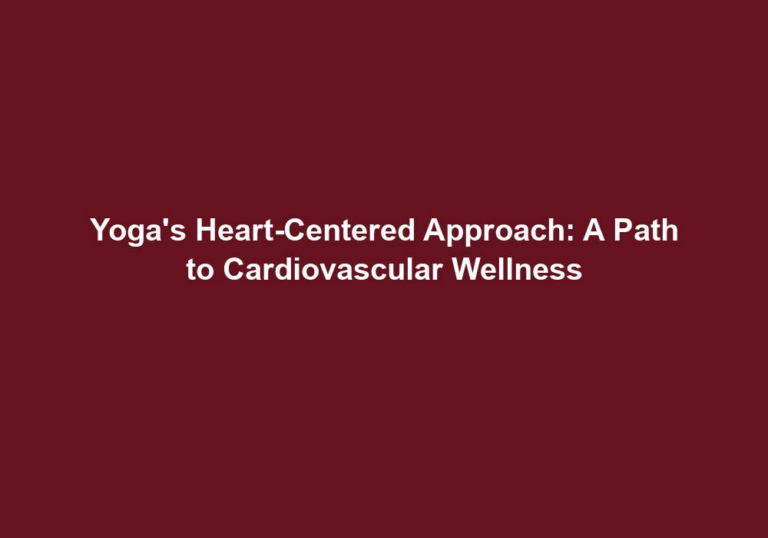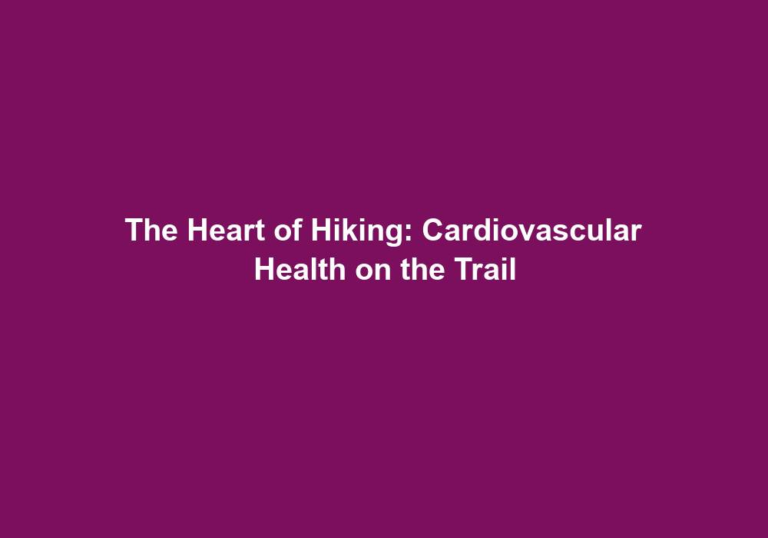Choices Matter: How Lifestyle Factors Impact Your Heart
The choices we make in our daily lives have a profound impact on our overall health, particularly when it comes to the well-being of our heart. Numerous lifestyle factors play a significant role in determining the health of our cardiovascular system. By understanding these factors and making informed decisions, we can promote a healthy heart and reduce the risk of heart diseases. In this article, we will explore the various lifestyle choices that can positively or negatively affect our heart health.
Diet: Fueling Your Heart
The food we consume not only provides us with energy but also affects the health of our heart. Making healthy dietary choices is crucial for maintaining a strong cardiovascular system. Here are some key factors to consider:
-
Balanced Diet: It is essential to follow a well-balanced diet that includes a variety of nutrient-rich foods. Incorporate plenty of fruits, vegetables, whole grains, lean proteins, and healthy fats into your meals. These foods provide essential vitamins, minerals, and antioxidants that support heart health. Additionally, a balanced diet helps maintain a healthy weight, which is important for reducing the risk of heart diseases.
-
Reduce Salt Intake: Consuming excessive amounts of salt can elevate blood pressure, increasing the risk of heart problems. Limit your salt intake by avoiding processed foods and opting for fresh, homemade meals. Instead, flavor your dishes with herbs, spices, or lemon juice. By reducing salt intake, you can help maintain healthy blood pressure levels and protect your heart.
-
Control Cholesterol: High levels of cholesterol can lead to the buildup of plaque in the arteries, restricting blood flow to the heart. To maintain healthy cholesterol levels, limit saturated and trans fats in your diet and choose healthier alternatives. Opt for lean meats, low-fat dairy products, and plant-based sources of protein. Additionally, incorporate foods high in soluble fiber, such as oats, beans, and fruits, as they can help lower cholesterol levels.
-
Monitor Sugar Consumption: Excessive sugar consumption can contribute to obesity, diabetes, and other conditions that increase the risk of heart diseases. Limit your intake of sugary beverages, sweets, and processed snacks. Instead, choose whole fruits as a natural source of sweetness and opt for healthier snack options like nuts or yogurt. By reducing sugar intake, you can maintain a healthy weight and lower the risk of heart problems.
Physical Activity: Strengthening Your Heart
Regular physical activity is crucial for keeping your heart healthy and strong. Engaging in exercises and activities that get your heart rate up offers numerous benefits, including:
-
Cardiovascular Fitness: Aerobic exercises like walking, running, swimming, or cycling help strengthen the heart muscle and improve cardiovascular fitness. Aim for at least 150 minutes of moderate-intensity aerobic activity or 75 minutes of vigorous-intensity activity per week. These exercises increase heart rate and breathing, improving the efficiency of your heart and enhancing overall heart health.
-
Resistance Training: Incorporating strength training exercises into your routine helps build muscle mass and improve overall strength. Strong muscles assist the heart in pumping blood and reduce the strain on the cardiovascular system. Include exercises like weightlifting or bodyweight exercises two to three times a week to promote heart health and overall fitness.
-
Flexibility and Balance: Activities like yoga or stretching exercises enhance flexibility and balance, reducing the risk of falls and injuries. These exercises also promote relaxation and stress reduction, which are beneficial for heart health. Incorporate stretching routines or yoga sessions into your weekly exercise regimen to improve flexibility, balance, and overall well-being.
-
Lifestyle Changes: Incorporate physical activity into your daily life by taking the stairs instead of the elevator, going for walks during breaks, or participating in active hobbies such as gardening or dancing. These small lifestyle changes can add up and contribute to a more active and heart-healthy lifestyle. Consider setting reminders or finding a workout buddy to stay motivated and accountable for your physical activity goals.
Smoking and Alcohol: Harmful Habits to Break
Smoking and excessive alcohol consumption are detrimental to heart health. Quitting smoking and moderating alcohol intake can greatly reduce the risk of heart diseases. Here’s why:
-
Smoking and Heart Disease: Smoking damages the blood vessels, reduces oxygen supply, and increases the risk of blood clots, leading to heart attacks and strokes. Quitting smoking is the single most important step you can take to protect your heart. Seek support from healthcare professionals, join smoking cessation programs, or explore nicotine replacement therapies to help you quit smoking successfully.
-
Alcohol and Heart Health: While moderate alcohol consumption can have some minor cardiovascular benefits, excessive drinking can lead to high blood pressure, heart failure, and stroke. If you choose to drink, do so in moderation, which means up to one drink per day for women and up to two drinks per day for men. It’s important to note that individuals with certain health conditions or those taking specific medications should avoid alcohol altogether. Discuss with your healthcare provider to determine what is safe and appropriate for you.
Stress Management: Prioritizing Mental Well-being
Chronic stress can contribute to high blood pressure and other heart-related problems. Prioritizing mental well-being and incorporating stress management techniques into your lifestyle is key. Here’s how to reduce stress:
-
Regular Exercise: Physical activity not only benefits your body but also helps manage stress levels. Engage in regular exercise to release endorphins, which are natural stress-fighting hormones. Find activities that you enjoy, whether it’s jogging, dancing, or practicing a sport, and make them a part of your routine to alleviate stress.
-
Relaxation Techniques: Practice relaxation techniques such as deep breathing exercises, meditation, or yoga to calm your mind and reduce stress. These techniques promote relaxation, improve focus, and reduce anxiety, helping to maintain a healthy heart. Consider attending yoga or meditation classes, using guided meditation apps, or setting aside quiet time for deep breathing exercises.
-
Healthy Relationships: Surround yourself with positive and supportive relationships. Interacting with loved ones can help reduce stress and promote emotional well-being. Share your feelings, seek social support, and maintain open communication with those who uplift and encourage you. Building and nurturing healthy relationships can have a significant impact on your overall stress levels and heart health.
-
Time Management: Effective time management can reduce stress levels by providing structure and allowing you to prioritize tasks efficiently. Create a daily or weekly schedule, set realistic goals, and break larger tasks into smaller, manageable steps. By managing your time effectively, you can reduce the feeling of being overwhelmed and improve your ability to cope with stress.
Regular Health Check-ups: Early Detection Matters
Regular health check-ups and screenings play a vital role in maintaining heart health. These check-ups help identify any potential risk factors or existing conditions, ensuring early detection and prompt treatment. Key screenings include:
-
Blood Pressure: Regular blood pressure checks can detect hypertension or high blood pressure, a significant risk factor for heart diseases. Monitoring your blood pressure allows for timely intervention and appropriate management strategies to maintain optimal heart health.
-
Cholesterol Levels: Monitoring your cholesterol levels helps identify any abnormalities and allows for appropriate interventions. High cholesterol levels can contribute to the development of heart diseases, but early detection and lifestyle modifications can help manage and control cholesterol effectively.
-
Blood Sugar: Regular blood sugar checks are essential to detect and manage diabetes, a condition that significantly increases the risk of heart diseases. By maintaining stable blood sugar levels through proper diet, exercise, and medication (if necessary), you can reduce the risk of heart problems associated with diabetes.
-
Weight Management: Regularly monitoring your weight and body mass index (BMI) helps identify any weight-related concerns and allows for appropriate lifestyle modifications. Being overweight or obese increases the risk of heart diseases, so maintaining a healthy weight through a balanced diet and regular physical activity is crucial.
By being proactive and making informed choices, you can significantly impact the health of your heart. Remember, your lifestyle choices matter, and adopting healthy habits can lead to a stronger, healthier heart and a better quality of life.
Please note that this generated content is for informational purposes only and should not substitute professional medical advice. Always consult with a qualified healthcare professional for personalized guidance on your specific health condition and lifestyle choices.


